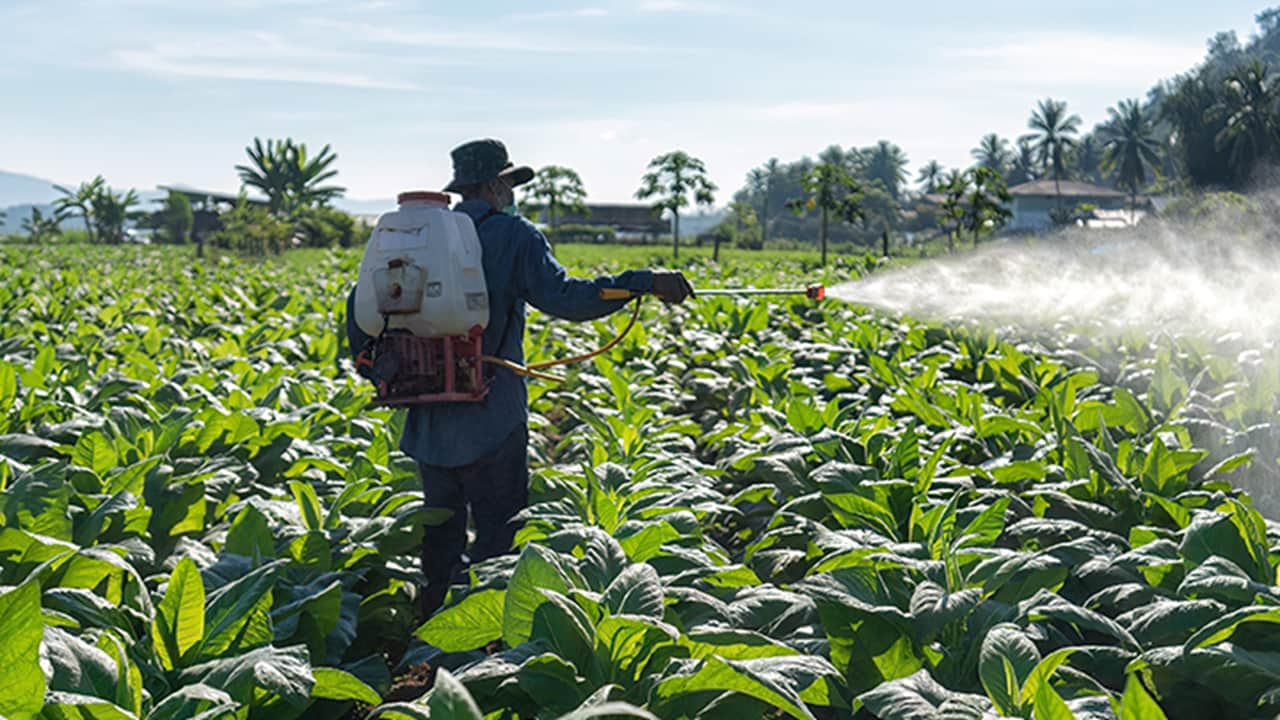The Chemical industry is a dynamic space that creates a wide range of chemicals used in various applications, from pharmaceuticals and food additives to construction materials and electronics.
A clear understanding of the international supply chain nuances for each Chemical industry segment is vital to gaining clear oversight of the myriad of exportation and importation touchpoints. The key message is that achieving effective trade compliance will save time, effort and costs in the long run. Based on our experience and expertise, the simultaneous and sequenced visibility of consignment transport and clearance process touchpoints is the best way to maximise both delivery efficiency and financial savings.
The Chemical industry at a glance
The global Chemical industry is said to be a USD 4 trillion enterprise that impacts virtually every sector of the economy. With over 95% of manufactured goods affected by chemistry, the industry is projected to reach USD 10 trillion by 2030.
The Chemical industry operates in a complex and uncertain logistical landscape. High raw material costs, increased protectionism, evolving sustainability regulations and additional import and export licences all pose various challenges. In this environment, businesses must ensure all requirements are met while maintaining competitiveness. The industry is governed by international treaties, national legislation, voluntary instruments and relevant international standards. It is further regulated across manufacturing, transport, storage, environmental law, waste and recycling.

So, what does the supply chain for chemical businesses look like?
The supply chain for the Chemical industry typically includes multiple stages. The process begins with sourcing and extraction of raw materials, extending to transportation, processing, distribution and disposal of waste products. Each stage involves multiple players, including suppliers, manufacturers, distributors and customers. Each of these four profiles requires thorough coordination to ensure that the right materials are available at the right time and at the right cost.
Gaps in custom capabilities and compliance, such as lack of awareness and understanding, can exacerbate the existing complex logistical landscape challenges, leading to inefficiencies, cost increases and delays. The solution is a reliable, cost-effective and streamlined customs compliance operating model. When this is achieved — through distinguishing and integrating supply chain regulatory compliance touchpoints – businesses get improved data control, visibility, compliance and savings in landed costs.
This is where Maersk Global Trade & Customs Consulting (GTCC) professionals come in. We have front-line and first-hand experience supporting clients with integrated supply chain planning and regulatory compliance. This includes assisting clients’ employees by imparting customs procedural knowledge and a better understanding of the regulations.
The costs of non-compliance
As the regulatory environment becomes more stringent for regulated industries like chemicals, businesses must ensure their internal compliance frameworks are tailored to effectively manage non-compliance risks. An area often overlooked when it comes to chemical supply chain optimisation is customs.
The cost of non-compliance with regulatory requirements is nearly three times higher than the cost of compliance (i.e., implementing governance and compliance frameworks and solutions).

The average cost of compliance came in at USD 5.47 million, while the average cost of non-compliance was USD 14.82 million.
- The average cost of non-compliance has risen more than 45% in 10 years.; and
- The true cost of non-compliance for organisations due to a single non-compliance event is an average of USD 4 million in revenue.
While customs fines and penalties alone are astounding, the impact of non-compliance extends to other hidden costs such as a loss of products seized by customs and/or:
- Reputational damage
- Business disruption due to audits by authorities
- Additional business costs to implement remedies for future monitoring and corrective actions
- Increased insurance costs
- Loss of customers and/or stakeholders
- Potential lawsuits
Given the staggering risks and downsides of non-compliance and the comparatively low cost of preventive action, wiser chemical businesses will take proactive measures to comply with customs and other regulatory obligations. As the costs of compliance are far less than the penalties for non-compliance, choosing the right customs and supply chain partner is essential to maximise fiscal efficiency.
Maersk Global Trade & Customs Consulting (GTCC) as your strategic partner
Maersk’s integrated trade and customs compliance capability can provide Chemical industry stakeholders with real-time visibility into their supply chain operations. Being able to see which goods move seamlessly across borders and which are regularly held up, helps create better solutions for delays and obstructions, while ensuring compliance with regulations.
Maersk GTCC compliance experience and expertise can offer significant business and financial benefits to organisations by designing or enhancing supply chain compliance policies and practices. Working with an expert partner is an effective way to alleviate burdens, reduce costs and accelerate your customs operations.
For many chemical businesses, the direct operating costs associated with customs such as customs duties, taxes and related fees for each declaration are significant. Duties are amongst the top five elements of landed costs. When an end-to-end shipment can involve up to 25 autonomous organisations, around 100 people and numerous data exchanges, errors will naturally occur. These errors can lead to unforeseen costs and penalties for incorrect administration. For example, it is estimated that 22% of global export delays every day are caused by submitting incorrect Harmonised System (HS) codes to customs.

By addressing these compliance challenges, Maersk GTCC can help businesses streamline their operations, minimise financial risks, and enhance their overall supply chain efficiency. Through integrated trade and customs compliance, the duties paid per year can be significantly reduced, generating strong financial savings. Other fiscal efficiencies include both direct and indirect savings:
Direct cost savings
- Savings and improved cash flow by identifying relevant available government incentives and evaluating eligibility and suitability for clients – e.g., duty deferral, duty drawback, surety, security and excise rebate
- Reduced risks, liabilities and penalties
- Accurate identification of the HS code of client goods – e.g., tariff classification and advance rulings ensure compliance throughout the company network
- Benefits calculated under product-specific rules under Free Trade Agreements (FTA)/ Economic Partnership Agreements (EPA) – e.g., change in tariff classification and regional value content
- Determining whether client goods meet relevant rules of origin for duty preferential treatment
- Strategic gains by integrating customs into the overall supply chain
- Future-proof insights and support to prepare for changing regulations
Indirect cost savings
- Warehousing – bonded/ unbonded, cash flow efficiencies
- Free Trade Zones / Hubbing
- Authorized Economic Operator / Trusted Trader status
- Understanding how goods will be treated under FTAs/EPAs – for both import and export
- Understanding product-specific ‘processing’ rules under relevant FTA/ EPA
- Staff fully trained with knowledge of regulations and procedures

Partner with Maersk to secure efficient end-to-end supply chain management
By analysing their supply chains, businesses can identify areas for improvement, minimise government revenue costs, improve compliance and prepare to respond more quickly to changes in regulatory obligations.
Chemical businesses should take a proactive, informed and responsive approach to end-to-end supply chain management. Chemical businesses can benefit from Maersk’s integrated trade and customs compliance approach and related supply chain management tools, assets and know-how to optimise end-to-end supply chain processes.
Maersk is a trusted partner, and our global team of trade and customs experts will ensure end-to-end, integrated supply chain services. This covers transportation, warehousing, digitalisation, customs and more. Our global team of logistics experts ensures seamless service delivery to keep your supply chain running smoothly and your business competitive.
To learn more about how Global Trade and Customs Consulting can help your business strategy, click the button below.
无论您需要什么,我们都可以随时为您提供帮助
I agree to receive logistics related news and marketing updates by email, phone, messaging services (e.g. WhatsApp) and other digital platforms, including but not limited to social media (e.g., LinkedIn) from A. P. Moller-Maersk and its affiliated companies (see latest company overview). I understand that I can opt out of such Maersk communications at any time by clicking the unsubscribe link. To see how we use your personal data, please read our Privacy Notification.
By completing this form, you confirm that you agree to the use of your personal data by Maersk as described in our Privacy Notification.





